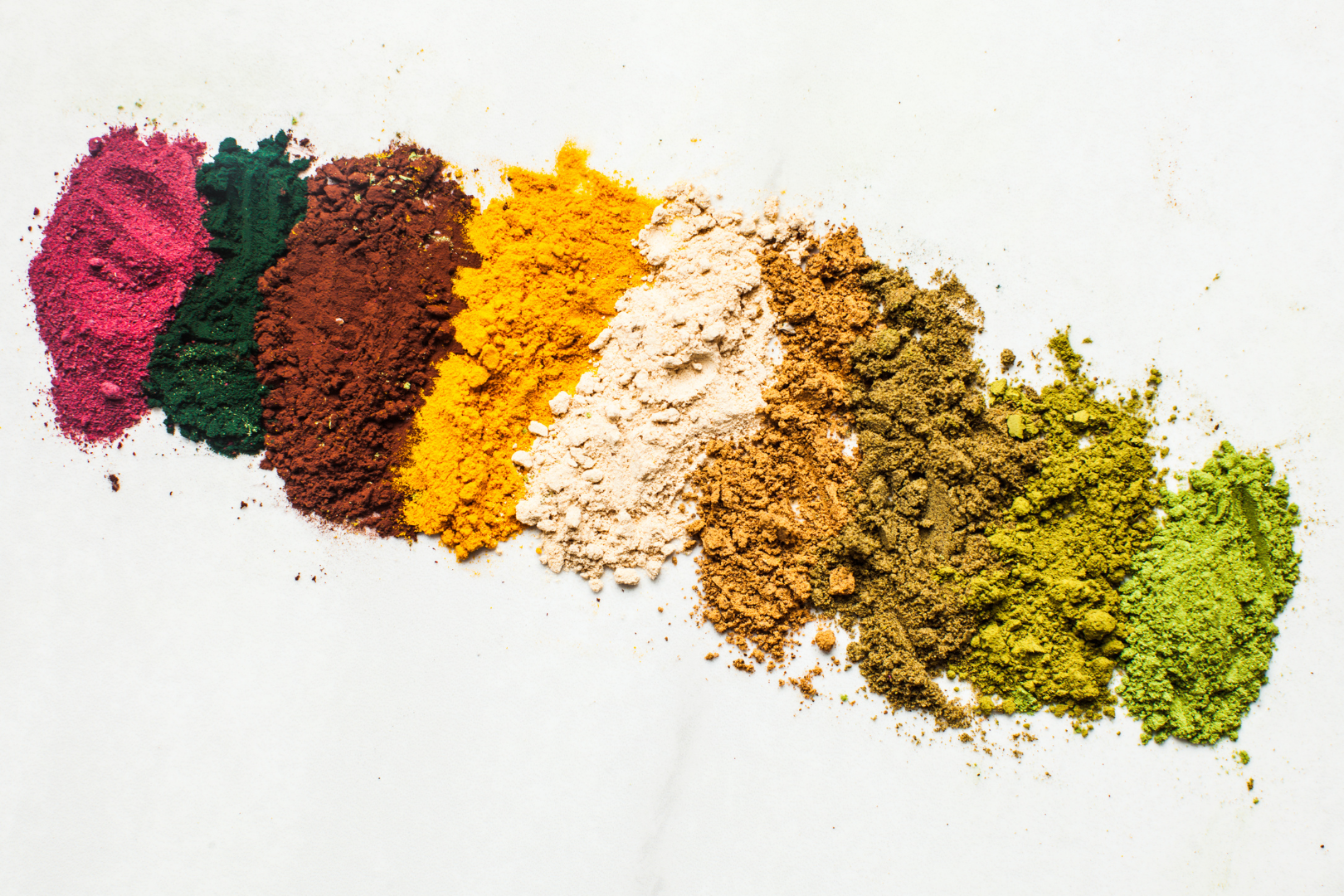
You’ve probably heard of superfoods like berries, spirulina, and yogurt. These foods have particularly high levels of nutrients and other compounds that are beneficial to our health, such as vitamins, minerals and fiber. You may be less familiar with functional foods.
Functional foods are foods, ingredients or components of food that provide health benefits beyond that offered by its nutrients. Functional foods help support the way your body functions. These foods help regulate and bring balance to functions like memory, sleep, digestion, metabolism, stress response, and immunity.
Together, we’ll unpack what functional foods are, understand their role in basic nutrition, and discover how they can support your well-being.
What Are Functional Foods?
Functional foods, also referred to as nutraceuticals, are foods that not only support nutritional goals, but also help regulate the way the body functions. These health-promoting ingredients range from common foods, like yogurt and certain types of tea, to herbs and spices.
The main difference between a functional food and any other food product you’d find on store shelves is that they’ve been studied and set apart for their ability to interact with certain homeostatic functions.
Your body wants to be in balance, a state called “homeostasis.” Life circumstances, illness, environmental factors and our own lifestyle habits can bring homeostatic functions offline. We lose sleep, we can’t seem to manage our stress, our metabolism seems sluggish and we suffer from poor digestion. Functional foods help restore the balance.
In Japan, the Japanese Ministry of Health developed a list of foods for specialized health uses (FOSHU). This list contains multiple functional foods which have been identified to help:
- Support bodily systems
- Reduce the risk of coronary heart disease
- Improve gastrointestinal health
- Help manage the body’s stress response
- Support metabolic health
If you’re wondering whether or not there is scientific evidence to back these claims, wonder no more. There’s plenty of research that shows how these foods affect our bodies, and we’ll give you all the links so you can check them out for yourself.

What Are the Health Benefits of Functional Foods?
There are various health benefits that functional foods offer. Many of these offer protection to bodily systems so that as they experience a natural decline with age, they don’t begin to malfunction or lead to illness.
Health benefits of functional foods often include:
- Heart health support
- Better regulation of cholesterol levels
- Improved immune function
- Regulation of blood pressure levels
- Better gut health
By making sure these functions are balanced and regulated, functional foods offer you a natural way to reduce your risk of developing chronic diseases and better help maintain your overall healthcare goals.
What Makes a Food Functional?
Functional foods are functional because of the bioactive compounds found inside of them. Some more common of such compounds include:
- Antioxidants. Antioxidants help protect the body against oxidative stress from free radicals. Oxidative stress can change how your cells function, which can lead to dysfunction and disease in the body.
- Probiotics and prebiotics. Probiotics are live cultures that help balance the levels of good bacteria in your gut. Prebiotics are fibers that feed these cultures and help them thrive.
- Flavonoids. Flavonoids are plant-based compounds that work as antioxidants, but certain flavonoids also offer different functions in the body, like cardiovascular support. There are six different types of flavonoids: anthocyanins, isoflavones, flavanones, flavones, flavan-3-ols, and flavonols.
- Carotenoids. These are compounds in plants that give them their orange-red color. They are antioxidants, and there are over 600 different types. Some carotenoids can be converted to vitamin A.
What Are Some Examples of Functional Foods?
Looking to add more function to your food? This list is a good place to start.

1. Yogurt
Yogurt is a dairy product that is also considered a functional food due to its status as a fermented food. Fermented foods contain probiotics, which help support gut health. Other foods (like kefir and sauerkraut) also contain probiotics.

2. Ginkgo Biloba
The leaves and fruit of the Ginkgo biloba tree are used when creating supplements. Ginkgo contains powerful antioxidants, most notably quercetin. This antioxidant helps support heart health and promote cognitive function.
In some studies, ginkgo biloba was useful in helping manage symptoms that often coincide with Alzheimer’s Disease, like tinnitus and vertigo. Gingko nuts are used in Chinese medicine to prevent fevers and treat skin disorders, toothaches, and overactive bladders. They are also commonly used to prevent neurodegenerative disorders.
You can find ginkgo biloba in our Focus Functional Chocolate, a delicious and decadent way to support your mind and regain your focus.

3. Matcha
We’re absolutely mad for matcha. This antioxidant-rich green powder is an ultra-concentrated form of green tea.
Matcha contains L-theanine, an amino acid that helps support a calm mind. Matcha also contains caffeine, but not as much as a cup of coffee.
What is the result of mixing L-theanine and caffeine? Most people refer to it as a state of calm focus or alert focus. This can translate to improved alertness and cognitive performance, which means that matcha might just help you nail that next presentation!
Matcha can also facilitate weight loss, detoxify the body, and may even stop cancer cells from proliferating.

4. Reishi Mushroom
Reishi mushroom is the first adaptogen on our list. Adaptogens are compounds that work to support the body’s stress response, making sure cortisol levels are balanced, protecting you from the negative health impacts of chronic stress, and lowering your risk of disease. Adaptogens also promote balanced functioning of the nervous and hormonal systems.
In addition, reishi has been used for centuries in Traditional Chinese Medicine (TCM) as a dietary supplement to support the immune system.
You can find reishi in several JOYÀ products, including:

5. Lion’s Mane Mushroom
Many functional foods support cognitive function, such as lion’s mane mushroom. Not only does it offer antioxidant benefits, but it also offers neurological support, protection and supporting brain function.
Lion’s mane mushroom contains compounds called beta-glucans, which are dietary fibers that work as prebiotics to support gut health. In addition, the fungal polysaccharides it contains give it immunomodulatory properties to help support your immunity.
Find it in Defend Functional Chocolate

6. Ashwagandha
Ashwagandha is one of our favorite herbs. It might be slightly hard to pronounce, but it has even more benefits than letters in its name. This small shrub with red orange berries is an adaptogen and offers functional benefits for energy levels, athletic performance, cardiovascular endurance, and enhanced recovery time.
It can also help with sexual health, supports memory and cognition, and even help regulate sleep.
You can find ashwagandha in Balance Functional Chocolate.
7. Pine Pollen
Pine pollen may sound like a nightmare if you have allergies, but it has numerous health benefits. It is rich in antioxidants and nutrients, and has some of the highest nutritional value of any of the functional foods on our list.
Pine pollen is also rich in a hormone called DHEA, which is naturally produced in our adrenal glands and is used as a precursor to other hormones, including testosterone and estrogens. Taking pine pollen can help support your adrenal health and your endocrine system.

8. Ginger
Ginger contains over 40 antioxidant compounds and is predominately used for its ability to help support the digestive system. Studies show that ginger is particularly useful in helping with gastric emptying, which can be incredibly beneficial if you suffer from poor or slow digestion when you eat or when you’ve overdone it on a meal.
Ginger has also been used by ancient cultures as a natural cough suppressant and as a soothing aid for congestion.

9. Astragalus
Astragalus is a prized ingredient in Traditional Chinese Medicine. Its Chinese name, huang qi, means “yellow leader”, so named because astragalus roots are a deep yellow, and it’s considered the leader of the tonic herbs (herbs that alleviate weakness in the body).
When research brought to light its ability to help regulate the immune system so it can function properly, it was also adopted as an important remedy in the West.
It has received increasing attention as an adaptogen, particularly for its normalizing activity on the immune, nervous, and hormonal systems.
You can find astragalus in Defend Functional Chocolate.

10. Mucuna Pruriens
Mucuna pruriens is a bean that grows in subtropical regions. It has neuroprotective properties due its high content of L-dopa, the precursor to dopamine, a neurotransmitter involved with memory, learning, and attention.

11. Maca
Maca is a root that contains antioxidants and can replenish your long-lost energy stores. Maca helps regulate energy levels, improving stamina and helping the body properly preserve energy. It can also help support healthy mood levels, due to its high content of GABA (Gamma-Aminobutyric Acid), a neurotransmitter that researchers suspect may boost mood or promote a calm, relaxed feeling.

12. Cacao
Who doesn’t love a little chocolate? Cacao (unlike cocoa) is not processed under the same high temperatures, so it retains more of the original compounds that give it its functionality. It contains high amounts of powerful antioxidants — in fact, it has higher concentrations than blueberries, cranberries, and pomegranates.
You can find cacao in all of our Functional Chocolate Bars.

13. He Shou Wu
He Shou Who? He Shou Wu is a root vegetable that helps support longevity. It has also been shown to raise levels of important antioxidants in the body necessary for fighting free radicals.

14. Turmeric
Turmeric is a root in the ginger family that does more than just give color and flavor to your favorite Indian dishes. It’s also supportive of the digestive system and packed with antioxidants. Not to mention, it has soothing properties that can help alleviate joint aches, as well as reduce inflammation.

15. Moringa Leaf
Last on our list but certainly not least in terms of benefits, moringa leaf is rich in antioxidants, flavonoids, polyphenols, and phytochemicals that support healthy cell function and may even stop bad cells from proliferating. It also offers cognitive support, like improved memory and protecting brain cells from oxidative stress.
How Can You Eat More Functional Foods?
Adding more functional foods to your diet is best by adding these foods directly or by sourcing them from high-quality functional dietary supplements like the ones you’ll find at JOYÀ.
Supplementation with these foods can improve your health and help you experience better balance in your body. It’s important to remember, however, that functional foods aren’t a substitute for whole foods or for a balanced diet.
The Bottom Line
Functional foods can help offer added health benefits to your healthy lifestyle. JOYÀ is passionate about the functional ingredients we add to our functional food products. If you’re serious about your health, try one of our chocolate to enjoy the benefits of functional foods.

